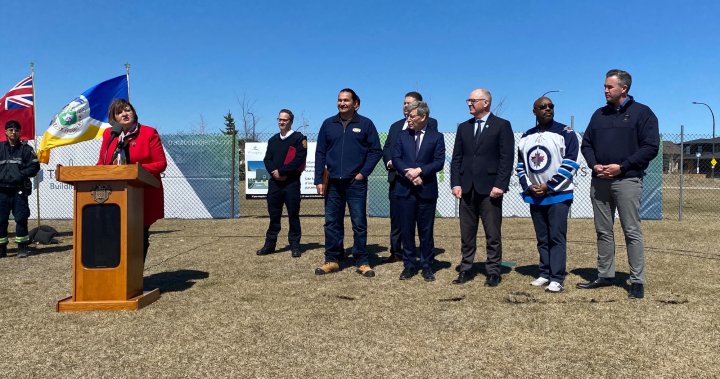Residents in the Waverley West neighbourhood of southwest Winnipeg will soon have access to a much-needed fire and paramedic hall, as three levels of government have come together to break ground on the project. This service has been lacking in the area since its development began in 2005, making it a critical piece of infrastructure necessary to support the neighbourhood’s growth. Councillor Janice Lukes is relieved that the project is finally moving forward, but she is also aware of the many other infrastructure needs in the city that must be addressed.
The current municipal funding model in Winnipeg is not working effectively, with only 10 cents of every tax dollar collected going to the city, while the province receives 40 cents and the federal government takes 50. This imbalance has put a strain on the city’s ability to address all of its infrastructure needs. Premier Wab Kinew has expressed willingness to have conversations about this issue with city administration, recognizing the importance of ensuring that cities have the resources they need to support their growth and development.
Mayor Scott Gillingham acknowledges the challenges that come with a growing city, emphasizing the need for not only housing but also the infrastructure to support it. This includes not only fire and paramedic stations, but also sewer treatment plants, water and sewer pipes, and other essential services. Brain Pincott with the Right to Housing Coalition suggests that the city could stretch its dollars further by investing in existing neighbourhoods and maintaining established front-line services, rather than constantly expanding on the outskirts of the city.
The new modular fire and paramedic hall in Waverley West will allow for quicker responses from Winnipeg Fire and Paramedic services, improving the safety and well-being of residents in the area. The city will continue to grapple with the challenge of balancing its growing needs with limited resources in the months and years to come. With various levels of government coming together to address these issues, there is hope for more effective collaboration and solutions to ensure that cities like Winnipeg can thrive and meet the needs of their residents.
Overall, the construction of the new fire and paramedic hall in Waverley West represents a positive step towards improving essential services in the neighbourhood. By addressing the imbalance in municipal funding and exploring ways to maximize existing resources, the city of Winnipeg can better support its growth and development in a sustainable manner. As residents look forward to enhanced emergency response capabilities, city officials will continue to work towards finding creative solutions to meet the evolving needs of a rapidly growing city.


